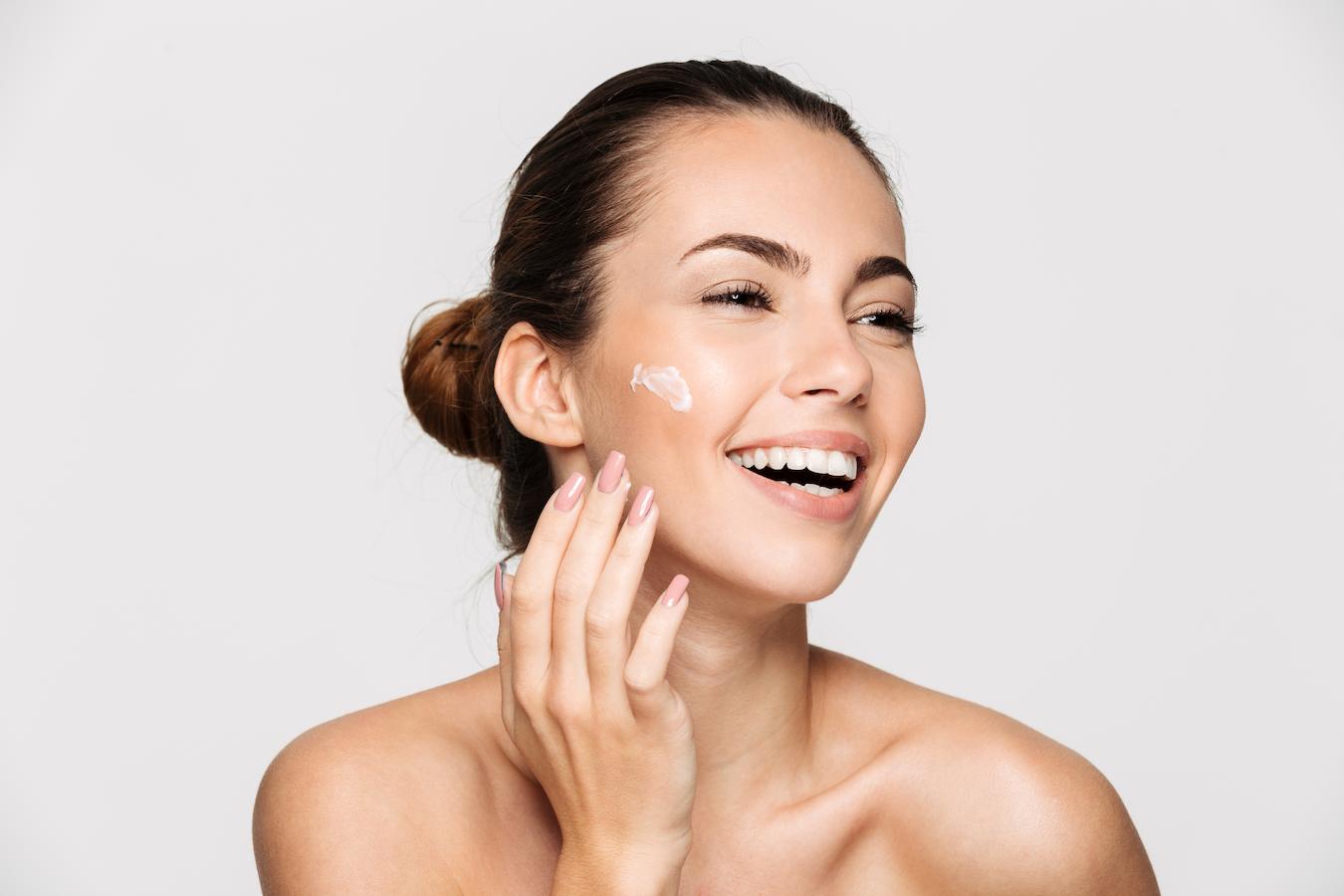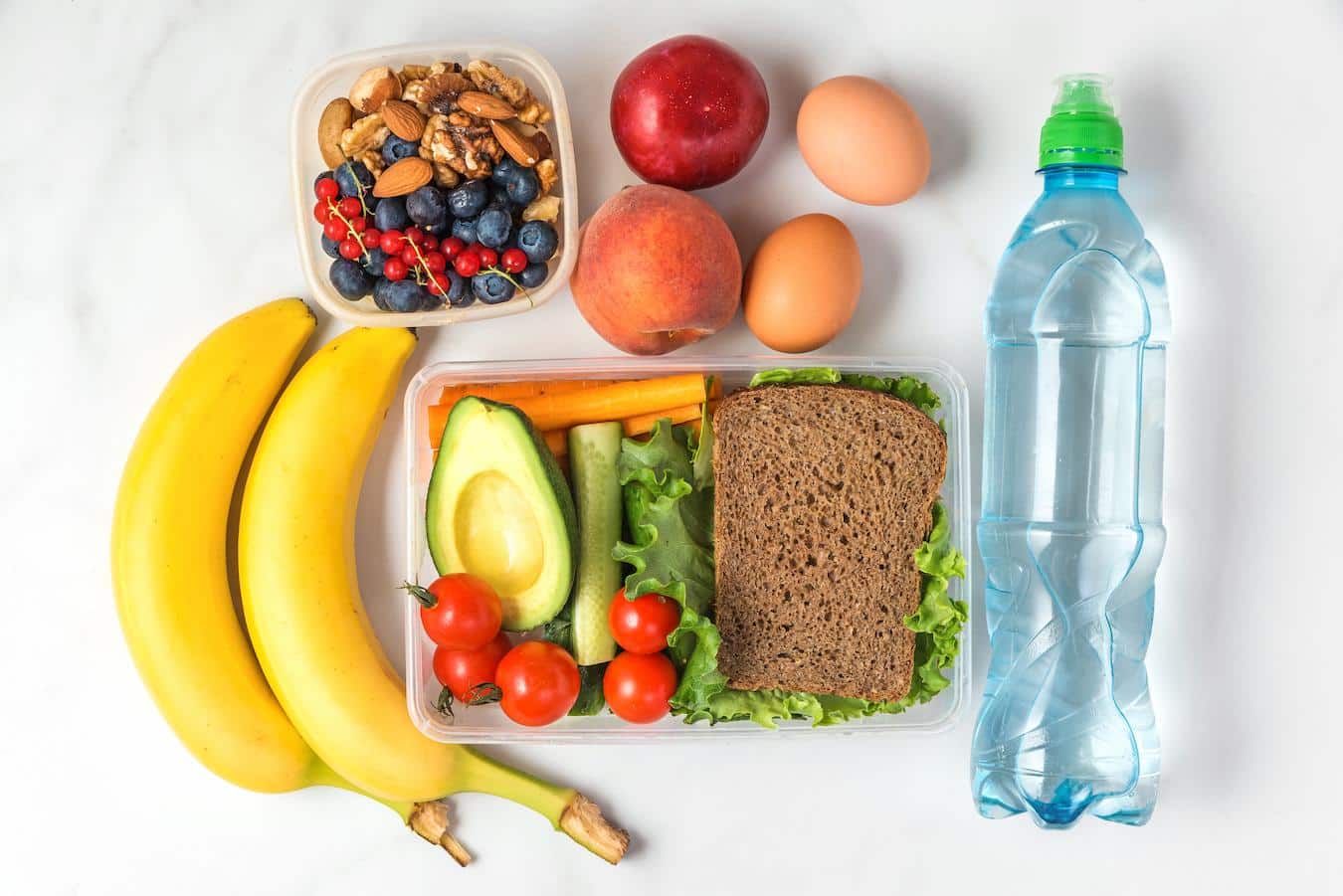How To Fix Dehydrated Skin
The skin is the largest organ in the body and accounts for about 60% of the water we contain. The connections between dehydration and skin damage are enormous.
The skin is among the first organs to reveal the effects of dryness, even at levels as low as 1%. An excellent technique to tell if your skin is dehydrated is to gently pinch it and observe how long it takes to return to its original form and position a test known as evaluating the skin’s elasticity.

You can tell dehydration is rampant if your skin doesn’t come back right away. Uncomfortably dehydrated skin is not unique to skin types.
However, it can also be correlated to a skin condition. It is always best to seek out the advice and expertise of a board-certified dermatologist.
There are several signs of dehydration in the skin, (also known as “transepidermal water loss“) including itching, dull skin, dark circles beneath the eyes, wrinkles and fine lines, and sunken eyes.
On the other hand, you might experience some of the signs of general dehydration. Symptoms might range from mild fatigue to dizziness, nausea, and vomiting. It’s essential to pay attention to signs of dehydration and dry skin in particular.
Here are eight excellent options to treat dehydrated skin that have been found to have a discernible effect to improve the skin and overall hydration.
See Related: Why Are My Lips Always Dry And Peeling?
Quick Tips When You Have Dehydrated Skin
- Apply a water-based moisturizer immediately after you shower
- In place of lotion, apply an ointment or cream (unless you have oily skin)
- Avoid soaps and products with harsh chemicals
- Use fragrance-free skin care products
- Pick detergent and garments that don’t cause further skin irritation
- Avoid close proximity to an air conditioner (it may feel good, but it can dry out your skin!)
- Avoid extreme temperatures and dry weather whenever possible
- Do not bathe in hot water
What Causes Dehydrated Skin?
Skin dehydration can be caused by a number of factors, including air conditioning, cold weather, lack of sleep, insufficient water intake, too hot showers, the use of harsh skincare products, or skipping a moderate skincare routine altogether.
Furthermore, dry skin isn’t the only thing with which dehydration can cause problems. When there is insufficient water in the skin, any skin type can become dehydrated. You will lose moisture from your skin if the air is dry.
How to Fix Dehydrated Skin
Drink plenty of water
One of the many benefits of drinking water in the morning is that it helps restore moisture to your skin. But since the average person sleeps about seven to nine hours every night, you likely haven’t had a chance to rehydrate in quite some time.
Because of this, your body is likely to be highly dehydrated right now. Thus, you must give this a top priority right now.
Getting your body’s moisture levels back to where they should be, which will benefit your skin and other organs, is as simple as drinking 16 ounces of water first thing in the morning. Dehydrated skin needs to be treated from within, and you can lay the best foundations first in the morning.
Drink more water throughout the day to recover from moisture loss
One of the most obvious reasons your skin is dehydrated is because you are! A lack of water is the root cause of dehydration, which manifests externally as dry skin.
Sweat and breathing alone might cause us to lose as much as 900 ml of water daily. Therefore, you must master the habit of sipping water regularly throughout the day.

Although it’s recommended to consume large amounts of water at the beginning and the end of the day, sipping water often throughout the day is preferable. Keep hydrated to stave off thirst.
The most effective remedy is to consume water frequently to replenish fluids throughout the day.
Limit your intake of alcohol and caffeine
It’s tempting to think that any liquid will do the trick when replenishing fluids lost through sweat. You’ll feel dehydrated since alcohol is a diuretic, so you’ll urinate more frequently.
Everyone can relate if they’ve ever had a binge drinking session without alternating with water glasses.
Caffeine is another substance that can harm the body if taken in excess. While consuming alcoholic beverages in moderation is generally safe, you should avoid the risks associated with consuming only caffeinated beverages.
Your skin will thank you if you drink one glass of water for every cup of coffee or tea you drink during the day, and it will improve your overall health.
Add rehydration sachets to your water
While drinking more water is the first step in improving hydration levels and protecting your skin and other body parts, water is not the only thing lost through sweat. The body also loses salts and electrolytes as sweat.
It has been established that summer workers lose an average of 4.8-6g of salt per shift, and electrolytes are depleted rapidly.
Numerous variables—size, physical activity, and weather—can affect the rates. However, you must also replace these essential components.
The easiest and most enjoyable way to do this is by pouring a Hydrant packet into a water glass and drinking it. As a result, this may be an essential factor in maintaining skin moisture.
Use water-based moisturizers on your skin
Stay hydrated inside and out! For hydrated skin, your daily skin care routine should include:
- a gentle cleanser (preferably water-based)
- a non-alcohol toner
- the removal or exfoliation of dead cells
- a hyaluronic acid serum
- and water-based moisturizer
This simple and effective routine will help your skin hold moisture, and balance oil production, leading to natural, healthy skin.
Although nourishing your skin inside and out is essential, keeping it hydrated on the outside is just as vital. Regeneration of ordinary, moisturized skin takes about 25 days.

Dry skin takes much longer. Using appropriate products for your skin type is an excellent method to head off this issue before it ever starts.
It won’t help just by adding water; solid facial scrubs may cause more damage than good. The skin benefits greatly from a mild exfoliant, and continuous usage of moisturizer is also beneficial because it keeps your skin hydrated.
Keeping moisture in your skin is essential
Using appropriate chemicals found in skincare products may address certain issues like removing dead skin, replenishing the loss of natural oils, and cell turnover, or addressing accelerated signs of aging, sealing moisture into your skin cells and improving the skin barrier will have a much more noticeable effect.
The easiest method is to keep the skin’s moisture barrier intact. Many products contain substances like jojoba oil that actively increase the skin’s hydration even if the health and body hydration levels are low.
Although it’s feasible to treat both skin problems and dehydrated skin simultaneously, these conditions are distinct. The benefits of being hydrated go far beyond the appearance of your skin and should not be underestimated. Thus this shouldn’t be used as a replacement for doing so. However, nighttime care that focuses on the largest organ can do miracles.
Make some simple life adjustments
You can treat your dehydrated skin from the comfort of your home. Even though it’s crucial to provide your body with the nourishment it needs, you also can’t discount your environment’s impact on you.
Because it affects your breath, dry air actively causes dehydration. Therefore, a humidifier is a worthwhile investment if you reside in a low-quality region.
Long, hot showers every day may not be the best alternative, too, and should be followed at the very least by an attempt to restore the body’s natural balance by rehydrating and refueling the nutrients and water it has lost.
The truth is that developing a consistent skin care routine requires only a small amount of time. If you put some effort into it, you are guaranteed to see results! You’ll feel more comfortable in your skin once you’ve done this.
Bonus: What Does Hyaluronic Acid Do For Acne?
What Foods Can You Eat to Help with Dehydrated Skin?
Nutrition plays a significant role in skin health. People who eat well-balanced diets and plant-based foods may have skin that is better able to perform its protective functions.
The skin may benefit from the antioxidants and lipids included in certain meals. One of the body’s most important organs is the skin. It acts as a shield against harmful elements, including germs, oxidants, and ultraviolet light, protecting the other parts of the body against harm.

The skin’s barrier function is critical for avoiding dehydration and shielding the body from noxious substances like toxins and allergens. It’s also helpful in keeping internal temperatures stable. Helping the skin achieve this barrier function requires nutrients.
Getting enough of the proper nutrients from food can assist a person’s skin do its job of protecting the body. Similarly, dietary deficiencies can alter skin function and increase the likelihood of problems like dehydrated skin.
Beef Liver
Vitamin A can be found in high amounts in beef liver. This is because vitamin A is stored in the liver of mammals. The vitamin A content of a 3-ounce portion of pan-fried beef liver is an established 6,582 micrograms, as the National Institute of Health reported.
Vitamin A intake can reach 731% of the DV with just one serving of this size. The recommended maximum daily allowance of vitamin A is 3,000 micrograms.
Excessive vitamin A consumption is harmful. Thus people should avoid going above this level. Vitamin A, which contains retinoids and carotenoids, is a trusted source for combating dehydrated skin.
These characteristics trigger routes inside the body that immediately affect the skin—repairing sun damage and alleviating psoriasis symptoms using vitamin A.
Sweet Potato
The vitamin A in sweet potatoes is also very high. With the skin on, a roasted sweet potato provides 1,403 micrograms of vitamin A. This size serving provides 156% of the daily value. A daily intake of 3,000 mcg of vitamin A is safe.
Extra consumption above this point may have adverse effects. According to the NIH, Vitamin A has various other applications besides treating dehydrated skin. For instance, it can shield against a lack of iron in the blood, improving one’s odds of surviving a number of diseases and disorders, including measles.
Sweet Red Pepper
Vitamin C is abundant in sweet red pepper. There are 95 milligrams of vitamin C in a half-cup of fresh sweet red pepper. Amounts to 106% of said DV in this case.
As a result of its ability to boost skin moisture significantly, vitamin C is helpful in the fight against dehydrated skin. As a bonus, this vitamin shields the skin from the sun’s potentially damaging effects.
Collagen production is boosted. As a result, it softens the skin and lessens aging effects, such as wrinkles, discoloration, and roughness.
Kiwi Fruit
Similarly to oranges, kiwifruit is a fruit rich in vitamin C. The vitamin C content of a single medium kiwi, 64 milligrams, equals 71% of the daily value. Iron and vitamin C deficiency can have unpleasant side effects on the skin, including aches and pains in the joints and slowing the healing of wounds.

The National Institutes of Health reports that vitamin C’s positive effects on health extend beyond its ability to moisturize and shield the skin. Vitamin C, for instance, can mitigate cold symptoms and reduce the likelihood that you’ll get cataracts.
Soy, Oats, and Almond milk
Vitamin D-enriched soy, almond, and even oat milk provide excellent alternatives to cow’s milk. The National Institutes of Health reports that each serving offers between 13 and 18% of the Daily Value with 2.5 to 3.6 mcg. Vitamin D’s ability to reduce inflammation is only one of its many health benefits, according to the NIH. As a result, the skin may be better able to retain water.
Foods to Avoid When Having Dehydrated Skin
Dehydrated skin can be caused by several factors, including what we eat and drink. Inflammation of the skin, which can impair the skin’s protective capabilities, was linked to a high-fat diet in a study set to be published in 2020.
Sugary and baked items can also exacerbate irritation and alter skin thickness. Consuming alcoholic beverages can also lead to dry skin and compromise the skin’s protective barrier function. Furthermore, cigarette use is associated with alterations in skin thickness, dehydration, and pigmentation.
Conclusion
The amount of sleep you get each night is just as crucial as the amount of water you drink daily. Getting eight hours of rest at night is recommended.
This helps you get a good night’s sleep and avoid the dehydration-related symptoms of puffy eyes and a dull face. Humidifying your bedroom while you sleep is a great way to replenish lost moisture and keep your skin soft and supple for the duration of your sleep.
When you’ve ensured you have enough rest and water, the next step is identifying facial creams that help with rehydration. Glycerin, aloe, honey, lactic acid, and citric acid are all excellent examples of what you should look for in such a product.
Always apply these products before bed and in the morning to assist your skin in retaining more moisture throughout the day. If your skin is very dehydrated, you should consult a board-certified dermatologist.
Keep Reading: A Guide On How To Get Clear Skin
—
For over 60 years, Viviane Woodard has represented “The Purity of Skincare”. We are the leading beauty brand for skin care products and promote the importance of good skin hydration. Follow us on Facebook, Instagram, Twitter, and Pinterest for skin care tips, product discounts, and more.